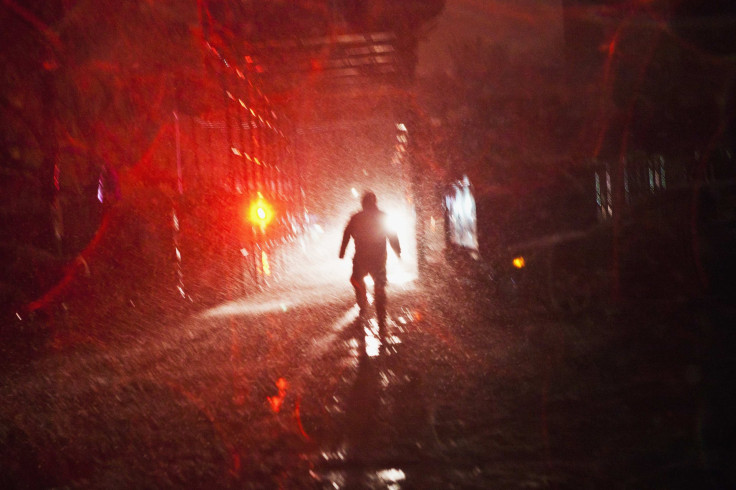Nor’easter Cuts Power To Thousands Of Homes, Causes Chaos

Even as the U.S. east coast recovers from the damage caused by Superstorm Sandy, a wintry storm hit the region Wednesday, bringing high winds, rain and snow which knocked out power supply in some areas.
The nor’easter has added to the woes of coastal residents of New York, New Jersey and Connecticut who faced new warnings to evacuate their homes, while airlines cancelled hundreds of flights, once again within a week.
An estimated 22,000 homes and businesses from the Carolinas to New York lost power Wednesday while another 640,000 customers are still living in the dark due to the outage that resulted from one of the most destructive storms ever to hit the U.S., Reuters reported.
New York and New Jersey evacuated the residents in the storm path ahead of the nor'easter, which was forecast to bring a high tide of about 2 feet above normal by early Thursday, the report said.
Public works crews have been working to build dunes to prevent more beach erosion with storm surges along the coasts of New Jersey and New York expected to reach perhaps 3 feet (0.9 meters), half to a third of what Sandy caused.
No major flooding has been reported while New York’s administrative authorities asked residents whose homes were flooded in Sandy to move to public shelters or other alternatives.
More than half a million homes and businesses remained without power as temperatures sunk to 30s Fahrenheit (-1 to 4 degrees Celsius) overnight, the Associated Press reported.
New York Mayor Michael Bloomberg warned citizens to take precautionary measures and evacuate from low-lying areas, though the nor’easter is not as strong as Sandy.
“Even though it’s not anywhere near as strong as Sandy nor strong enough, in normal times, for us to evacuate anybody out of precaution and because of the changing physical circumstances, we are going to go to some small areas and ask those people to go to higher ground,” Bloomberg was quoted as saying by the AP.
However, many have decided against moving out due to the risk of leaving their homes unattended, since weather forecasts don’t predict the situation to get any worse than it already is, the report said quoting New York City residents.
A resident of the hard-hit Rockaways section of New York City, James Alexander, likened the storm to “a sequel of a horror movie.”
© Copyright IBTimes 2025. All rights reserved.






















